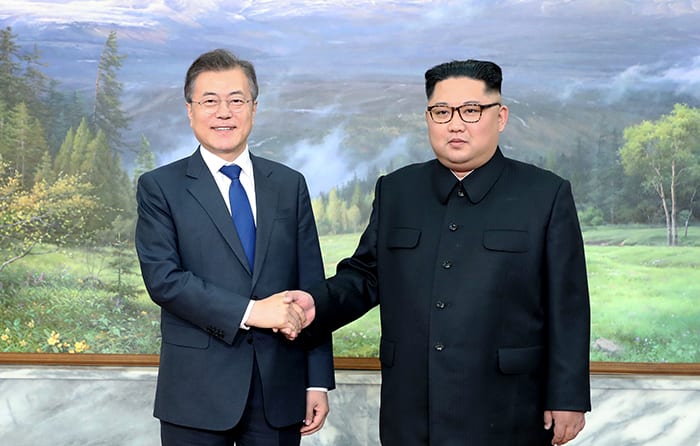 Blue House Photo
Blue House Photo
North Korean Threats Aim to Exploit US-South Korea Rift
Last Friday, the North Korean Foreign Ministry released a statement threatening to resume its byungjin policy of the simultaneous development of its nuclear program and economy. In the statement North Korea decried the US policy of “denuclearization first, lifting of sanctions next” and declared that “the improvement of relations and sanctions are incompatible.” Kim Jong un announced the end of his byungjin policy in April of 2018 during the lead-up to his summit with President Trump. This was widely seen as a concession to the US to reduce tensions. The threat to reinstate the policy underscores North Korea’s growing impatience with its perceived lack of concessions by the US.
Although Pyongyang’s threats on the surface appear to be addressed at the United States, they are more likely targeted at Seoul. While North Korea knows that the US is very unlikely to grant sanctions relief in the current political climate, it views South Korea as an easier target to obtain sanctions relief from.
North Korea knows South Korea has a greater incentive to reach a deal than the US does. If a war were to break out, South Korea would sustain the vast majority of causalities and damage. Additionally, the memory of mass civilian casualties from the Korean War is not forgotten. Thus, if South Korea believes negotiations are at risk of collapsing it is likely to offer sanctions relief in order to keep North Korea at the negotiating table. Additionally, President Moon of South Korea has staked his reputation on engagement with the North, and stands to pay a heavy political price if talks collapse. Both of these factors provide further incentive for South Korea to secure a deal, irrespective of whether said deal includes denuclearization.
Obtaining sanctions relief from South Korea would further benefit North Korea by exacerbating the rift that already exists between Seoul and Washington. This rift, while not new, was thrust into the open last month when South Korea considered lifting unilateral sanctions, before relenting to US pressure.
Both the US and South Korea have exacerbated the rift by refusing to acknowledge its existence. South Korea emphasizes its commitment to North Korean denuclearization while simultaneously pursing diplomatic openings and sanctions relief that are not contingent on denuclearization. Likewise, the US has remained steadfast in its demand that sanctions relief will only come after complete denuclearization. Secretary Pompeo reaffirmed this demand during an interview with CBS News last Sunday saying, “denuclearization…is a prerequisite to lifting economic sanctions”.
To conclude, neither the US or South Korea should grant additional sanctions relief to the North Koreans, until there is consensus on how to move forward. Doing so would significantly weaken the negotiating leverage of both nations entering nuclear negotiations. Altering their differing priorities will allow the two allies to reconcile their differences and form one coherent negotiating strategy.





